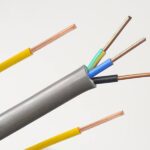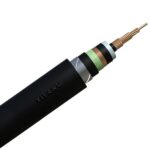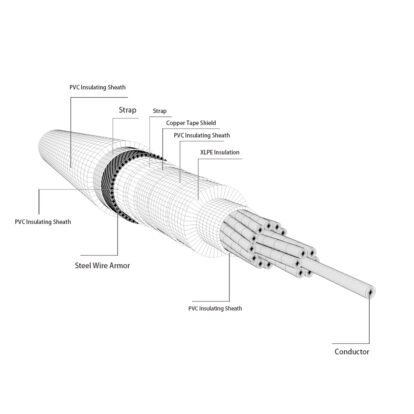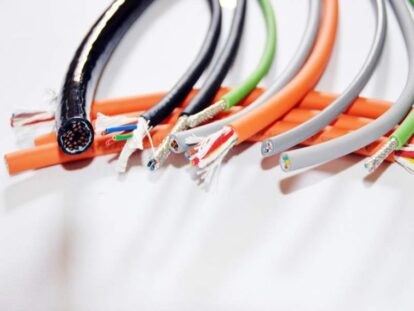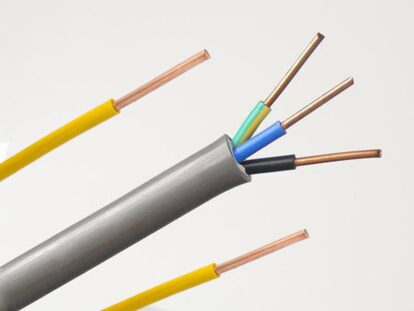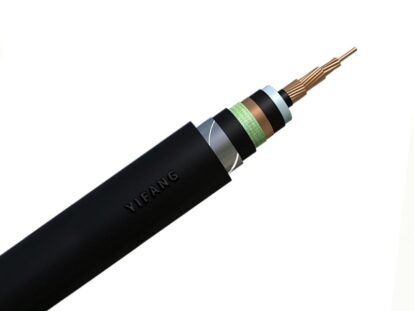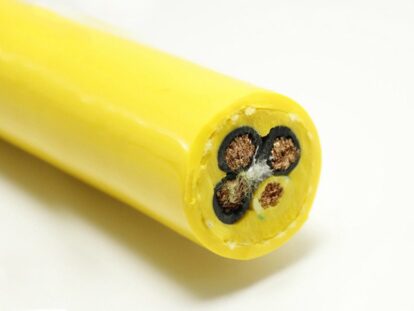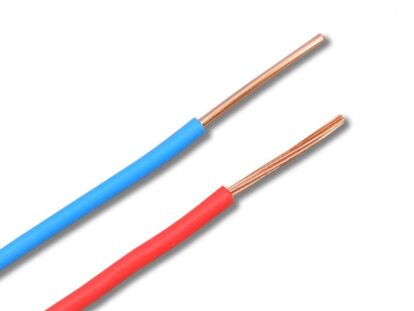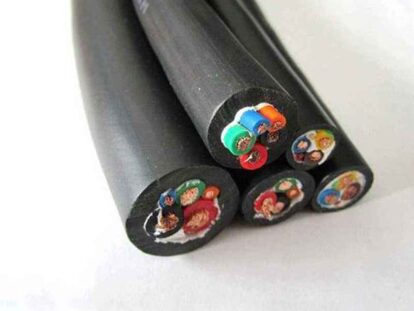In the digital age, cables play a vital role as one of the indispensable and important parts of our lives. Although the selection cost of copper clad aluminum (CCA) cables is lower, compared with pure copper cables, there is a big difference in their electrical performance. Therefore, when choosing the type of cable that suits us, we need to understand the relevant precautions, advantages and disadvantages of using CCA cables, and the principles of selection.
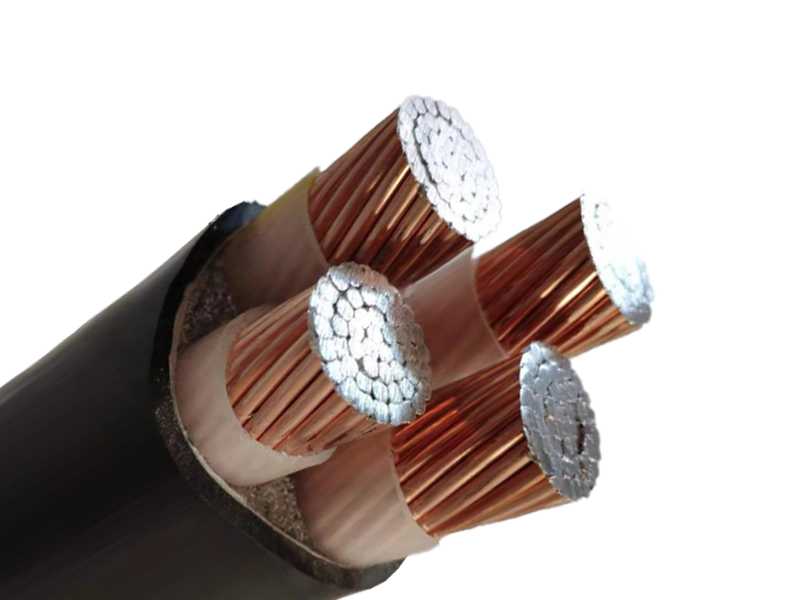
What is a CCA cable?
The full name of CCA cable is Copper-Clad Aluminum Cable (copper-clad aluminum cable), which is a cable made of copper-clad aluminum. The interior of the CCA cable is composed of an aluminum core and an outer copper cladding layer, and the appearance is not significantly different from that of a pure copper cable.
Electrical Characteristics of CCA Cables
- Higher resistance value: Since the conductivity of aluminum is much lower than that of copper, the resistance of CCA cables is much higher than that of pure copper cables of the same size.
- Limited signal transmission distance: Due to the high resistance value of the cable, CCA cables cannot transmit Ethernet data signals over long distances, and the signal strength will weaken more in shorter distances.
- Not suitable for PoE: CCA cables are also not suitable for PoE (Power over Ethernet), especially the latest versions of PoE that offer higher wattage and higher current.
Pros and Cons of CCA Cables
Advantage:
Inexpensive: Compared with pure copper cables, CCA cables are cheaper.
Lightweight: Since aluminum is less dense than copper, CCA cables are lighter than pure copper cables of the same size.
Corrosion resistance: Due to the existence of copper clad coating, CCA cable has very good corrosion resistance.
Shortcoming:
High resistance value: Since the conductivity of aluminum is lower than that of copper, the resistance of CCA cables is much higher than that of pure copper cables of the same size, which will affect the signal transmission distance and quality.
Short service life: Due to the electrical characteristics of CCA cables, problems such as disconnection may occur after a period of use.
Not suitable for high-load environments: In high-load environments, CCA cables are prone to failure due to overheating.
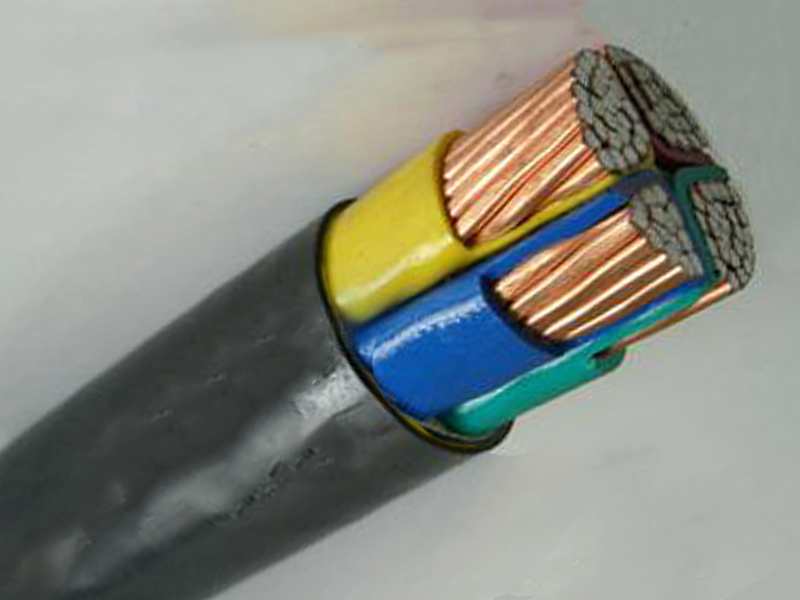
How to identify a CCA cable and why not use it?
- Method 1: Check the appearance of the cable
First of all, we can preliminarily identify whether it is a CCA cable by checking the appearance of the cable. Usually, the appearance of pure copper cable is yellow or brown, while the outer layer of CCA cable is copper color. If you can't tell the difference by yourself, you can consult a professional or a seller for a more accurate judgment. - Method 2: Test the resistance value of the cable
In a broad sense, the smaller the resistance value of the cable, the stronger its conductivity. Therefore, this is also a method used to distinguish CCA cables from pure copper cables. In actual operation, you can use measuring tools such as domino meter and resistivity meter to quickly test the resistance value of the cable. The resistance value of a pure copper cable is lower than that of a CCA cable at the same length. If the resistance value of the cable is high, it is likely to be a CCA cable. - Method 3: Check the identification of the cable
Usually, various types of cables are marked with model, manufacturer and other relevant information on the shell. The CCA cable is no exception. This information can be obtained by checking the marking on the cable housing or checking the instructions in the box. If you did not get the detailed information of the cable when you purchased the cable, you can contact the seller or manufacturer for a more accurate judgment.
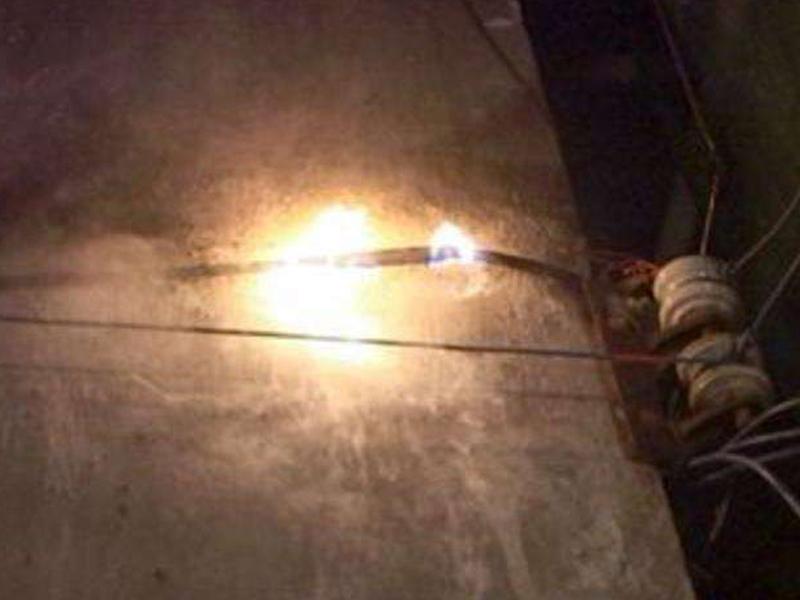
How to choose a cable type
When selecting the cable type, the following factors need to be considered:
Signal transmission distance: If you need to transmit signals from a long distance, you should choose pure copper cables instead of CCA cables.
Load environment: If you need to withstand a large load environment, you should choose pure copper cables.
Budget: If the budget is limited and you don't need to transmit for a long time or heavy load, you can choose CCA cable.
Conclusion
By understanding the above knowledge about CCA cables, I believe you have a clearer understanding of how to choose the type of cable that suits you. In actual use, we recommend comprehensive consideration according to specific application scenarios and requirements, and weigh the selection of different types of cables to achieve the best use effect.



